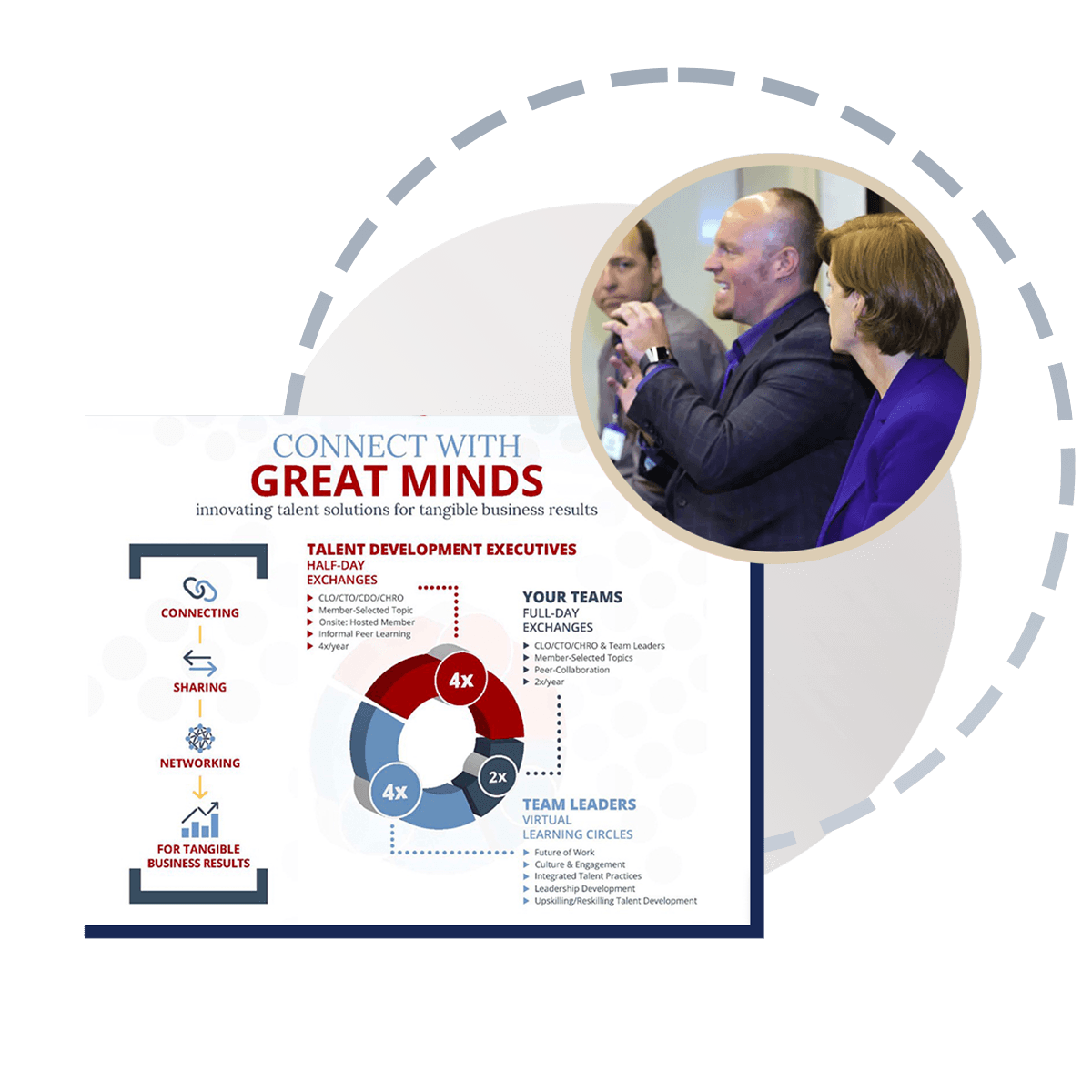An organization’s culture can be defined as the complex combination of beliefs, behaviors and actions within that organization. Almost half of organizations said identifying culture has become a key business imperative. The benefits are clear. When a company’s culture aligns with strategy the outcomes are profound and measurable:
- 44% more employees are engaged
- 29% lower turnover
- 4 X higher sales returns
Yet, when an organization’s culture and strategy do not match, it is almost certain the strategy will stall or fail. The most critical aspect of corporate strategy is its translation into reality by aligning with culture. In this session, we will examine the role of learning in supporting culture transformation.
To help guide this presentation and roundtable discussion, our facilitators will focus discussion around latest research and examine the following questions...
- What are the characteristics of a high performing culture?
- How can learning leaders identify a culture/strategy mismatch?
- What specific programs can be designed to engage leaders as teachers in the culture/strategy alignment process?
- How does learning translate those programs from executive level to the supervisory levels? What are real examples of these cascaded programs?
- How does learning measure the success of programs designed to transform culture?
- Research consistently shows companies with shared purpose have greater employee satisfaction and success, yet less than half of those surveyed agreed their organization’s strategy reflects the sense of purpose. What barriers exist in creating alignment between strategy and culture? What is learning's role in achieving this achieving this alignment?
